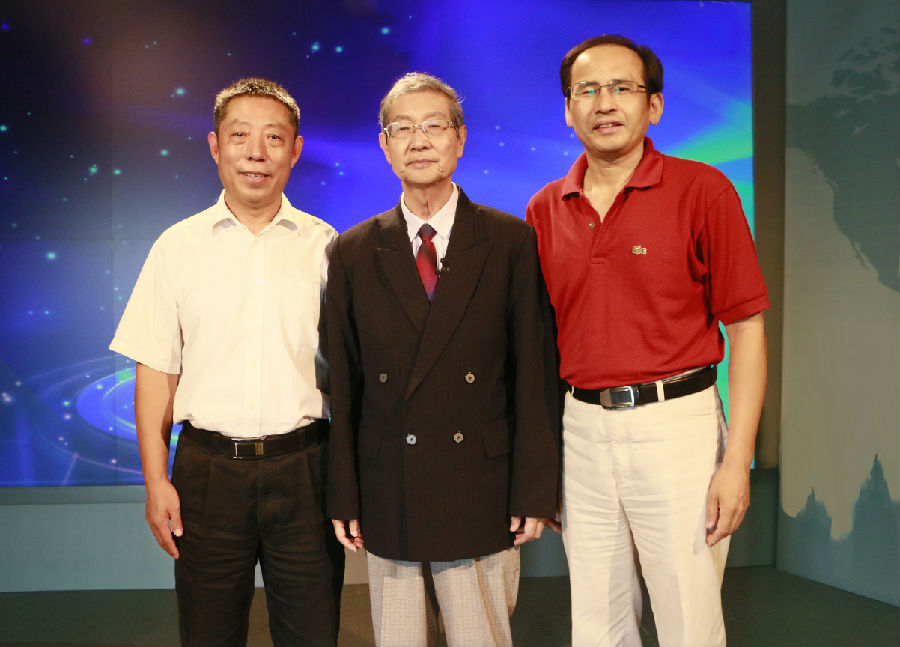 On 18th September,2017, Chen Runsheng was invited by the Science and China: Lectures by Academicians and Experts project team to record a video lecture on Genome, Big Data and Precision Medicine at the Open University of China (OUC). The OUC’s vice president, Liu Chen, observed the recording.
On 18th September,2017, Chen Runsheng was invited by the Science and China: Lectures by Academicians and Experts project team to record a video lecture on Genome, Big Data and Precision Medicine at the Open University of China (OUC). The OUC’s vice president, Liu Chen, observed the recording.

Chen Runsheng was one of the first researchers in China to study theoretical biology, bioinformatics, and non-coding RNA. He took part in the assembling and gene identification of China’s first complete genome: Thermoanaerobacter Tengcongensis B4 genome sequence, as well as in Chinese research on sketch drawing of the human and rice genomes.

Chen expounded on the application of big data in the medical industry in terms of genomes, big data, and precision medicine. Precision medicine, in short, is a combination of Omics big data with medicine. Since the 1990s, we have been able to detect each person’s genetic code. Omics big data, represented by genetic code, was used to acquire further knowledge after analysis, and also used to build a database on human diseases.
Chen pointed out that precision medicine may change, and lead to the development of new industries on a large scale. For now, it is newly established, and still faces immense challenges. Currently, there are only a small number of human genetic code patterns to analyse. There is still a large amount of “dark information” beyond our analysis capabilities. The human genome has about three billion base pairs, or about three billion genetic codes. Through the combined power of the entire globe’s scientists, we have finished the human genome sequencing project, covering about 100 million base pairs, though that is only 3% of the total number of base pairs across the entire human genome. This means that, so far, 97% of the genetic code remains a secret, and that the study of non-coding RNA remains a huge barrier in genomics.
Chen said that precision medicine relies on Omics big data. Both Omics and big data themselves face challenges. While data is easily measured it is not always fully understood. Big data mining itself also has faces problems, including understanding the biological meaning of data, as well as errors within data samples and the data, etc. The combination of genomes, big data, and precision medicine is an opportunity. If we can learn more about presently unknown data points, we could push the work forward a little further, develop more applications, and promote the development of precision medicine.
By Zhou Wanyue, OUC